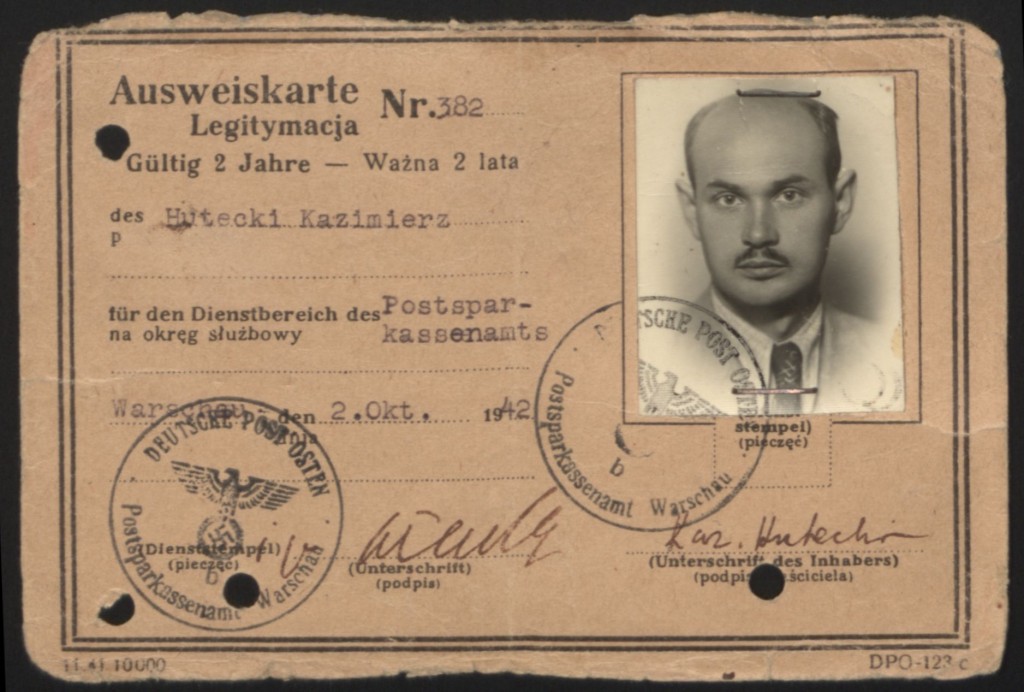
During World War II, people often used false identities and forged identity documents to evade Nazi authorities. False identities were essential for resistance fighters, aid workers, and Jews hoping to pass as non-Jews. Creating high-quality, convincing forgeries required dozens of people to work together clandestinely. It also required sophisticated photography and printing equipment. For Jews passing as non-Jews, acquiring forged documents could mean the difference between life and death.
This forged document was used by Tadeusz J. Sarnecki during World War II. Under the pseudonym “Kazimierz Hutecki,” Tadeusz worked with the Council for Aid to Jews (codenamed “Żegota”). Żegota was a clandestine rescue organization of Poles and Jews. Supported by the Polish government-in-exile, it coordinated efforts to save Jews in German-occupied Poland from Nazi persecution and murder. From 1942 to 1944, Tadeusz and his wife, Ewa, secretly worked as couriers for the Zamość and Lublin branches of Żegota. They traveled to forced labor camps in the region, including Piotrków Trybunalski, Radom, and Starachowice. The Sarneckis secretly delivered money, documents, food, medicine, and letters to some of the Jews imprisoned there. On several occasions, they helped individuals escape by smuggling them out of these camps. Both Tadeusz and Ewa survived the war.
We would like to thank Crown Family Philanthropies, Abe and Ida Cooper Foundation, the Claims Conference, EVZ, and BMF for supporting the ongoing work to create content and resources for the Holocaust Encyclopedia. View the list of donor acknowledgement.